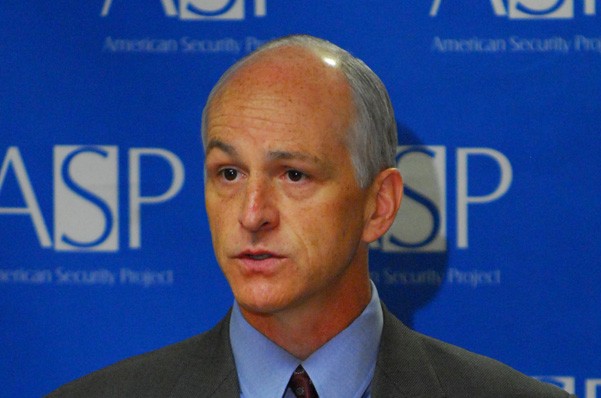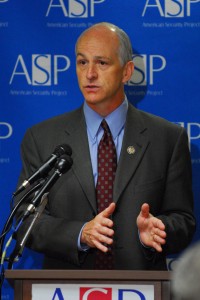
Rep. Adam Smith Comes to ASP
Podcast: Play in new window | Download
Subscribe: Apple Podcasts | RSS
CLICK HERE TO LISTEN
Today the American Security Project hosted Rep. Adam Smith (D-WA), who spoke about US interests in Africa and AFRICOM. Rep. Smith said we need to look at Africa as an opportunity, not a crisis: it is a place where a unique government agency, AFRICOM, is trying to work holistically to build institutions and create stability.
“AFRICOM is a model for working the whole of government,” Rep. Smith told the audience, referring to the doctrine whereby the military is not always in the lead of security and assistance programs.
Rep. Smith focused his comments on the need for partnership across the continent. “Africa is rich not just in resources but in human resources,” he said. Because of that, the focus needs to be on developing African human capital – building their ability to secure themselves, develop themselves, and to thrive on their own.
From a security perspective, Rep. Smith also spoke about how partnerships allow the US to engage with a country’s security challenges at low cost. In his view, partnerships work as force multipliers that enable the US to achieve security goals at a lower cost and with fewer US troops than previously thought. “We are past the point in history,” he said, “where a foreign military can impose itself on a country and succeed. It just doesn’t work.”
Rep. Smith noted that you cannot pacify a country like Somalia with 100,000 American troops. What’s needed, instead, is partnership with local governments so they can take the lead in doing so. Looking at Somalia, where there have been substantial gains in security in the capital, Mogadishu. “The Horn of Africa,” he said, “is where we recognized the need for local allies: Kenya, Ethiopia, Uganda, and Djibouti are all essential to creating that success.”
The use of local partnerships, he continued, allows the US to build off security gains to help build other parts of civil society. However, he cautioned, security is going to remain a key: “We are concerned with al Qaeda in the Islamic Maghreb,” he said, referring to the Islamist insurgency trying to overthrow the government of Algeria. Mali and Nigeria also pose serious security challenges that have to be dealt with as well, he said, before the other projects like building an economy can really succeed.
The audience asked several critical questions. More than one focused on how the US can balance its security concerns with its desire to support good governance. One audience member specifically mentioned Uganda and Ethiopia as US partners that have serious challenges to democratic governance. Rep. Smith acknowledged that those are challenging situations, and that several competing needs must be balanced. Sometimes, he admitted, the US doesn’t get the balance quite right. But, he emphasized, security cannot come at the expense of legitimacy, so it’s a constant process.
One of the most challenging threats is what to do about the various al Qaeda franchises on the continent. “Most of these insurgencies have local concerns,” he said. “However, they’re only local until they’re not – and knowing when they stop being local problems is really hard.”
Lastly some audience members asked Rep. Smith about how the US handles assistance to African countries. Rep. Smith was adamant that the US system for handling development and aid is broken. He appealed to the model of DfID, the UK Department for International Development, for how we can envision a successful, consolidated development agency that is effective. The current aid system is broken up between the Department of State, USAID, and several other agencies. Without having a single agency responsible for development work, Rep. Smith said, we will continue to be ineffective at what we do.
Rep. Smith ended the event by talking about the necessity to improve trade ties with all of Africa. “There is so much that we can do through trade,” he told the audience. Trade is how the US will build permanent, constructive relationships with African countries, and that will help both parties build a better future.







[…] conditions for economic development, he told an audience of foreign policy experts July 12 at the American Security Project, a Washington, D.C., think tank.In the aftermath of financially and humanly draining wars in Iraq and Afghanistan, the American […]
[…] American Security Project hosted Representative Adam Smith for a discussion on the increasing importance of Africa to US policy. Event materials are available here. Share […]